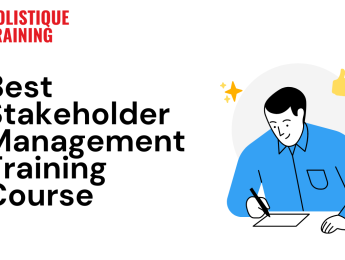- Table of Contents
- Introduction
- The Importance of Culture
- Employee Engagement and Productivity
- Customer Satisfaction and Brand Reputation
- Recruitment and Talent Retention
- Innovation and Adaptability
- Employee Well-being and Mental Health
- Ethical Behaviour and Integrity
- Organisational Resilience
- Teamwork and Collaboration
- Employee Satisfaction and Retention
- Alignment with Strategic Goals
- What Do the Numbers Say?
- Organisational Health and the Company Culture
- How to Measure Organisational Health: Key Metrics
- 1- Employee Engagement
- 2- Turnover Rate
- 3- Feedback Mechanisms
- 4- Communication Effectiveness
- 5- Leadership Effectiveness
- 6- Innovation and Adaptability
- The Interconnectedness of Metrics
- Implementing Change
- Technology as an Enabler
- Benchmarking Against Industry Standards
- The 6 Pillars of Building a Successful Company Culture
- 1- Clear Purpose and Values
- 2- Empowering Leadership
- 3- Inclusive and Diverse Environment
- 4- Continuous Learning and Development
- 5- Recognition and Appreciation
- 6- Work-Life Balance
- The Interconnected Nature of the Pillars
- Implementing the Pillars
- Conclusion
Introduction
In the world of business, company culture is more than just a buzzword; it's the soul of an organisation. Company culture encompasses the shared values, beliefs, attitudes, and behaviours that define how people interact within a company. It is the invisible thread that weaves together the employees, leadership, and stakeholders, influencing everything from employee morale and productivity to customer satisfaction and brand reputation.
The Importance of Culture
A company's culture is not something that can be designed on a whim; it develops over time, influenced by the collective actions, decisions, and values of the people within the organisation. Here are some key aspects that highlight the immense importance of company culture:
Employee Engagement and Productivity
A positive company culture acts as the catalyst for elevatingemployee engagement. Engaged employees transcend the routine; they are impassioned contributors driven by a profound connection to the organisation's purpose. This heightened engagement translates into increased productivity, as these employees willingly go above and beyond to contribute to the collective success of the company. The positive energy emanating from a culture of engagement creates an environment conducive to innovation, commitment, and a shared pursuit of organisational goals.
Customer Satisfaction and Brand Reputation
Happy and engaged employees set the stage for a positive customer experience. When the workforce is genuinely passionate about their work and committed to the values of the company, this authenticity permeates customer interactions. The result is not just satisfied customers but the building blocks of a robust brand reputation. Customers are drawn to companies with a positive culture, creating a virtuous cycle where satisfied customers contribute to a positive brand image, further enhancing the organisation's appeal to both customers and potential employees.
Recruitment and Talent Retention
In the competitive arena of talent acquisition, a strong company culture is a magnet for top-tier talent. In an era where employees seek more than just financial compensation, organisations that embody a positive culture become the employer of choice. Once talent is acquired, the culture continues to play a pivotal role in retention. Employees who feel a deep connection to the values and ethos of the company are more likely to stay committed for the long haul, contributing to institutional knowledge and fostering a stable, experienced workforce.
Innovation and Adaptability
Innovation and adaptability are the lifeblood of organisations navigating a rapidly evolving business landscape. A company culture that encourages creativity, risk-taking, and continuous learning becomes the breeding ground for innovation. Employees immersed in such a culture feel empowered to explore new ideas, experiment with different approaches, and adapt swiftly to changing market conditions. This flexibility is not just advantageous—it's imperative for survival and prosperity in industries marked by constant change.
Employee Well-being and Mental Health
A toxic work environment can have severe consequences on the mental and physical health of employees. Here, the significance of a positive company culture extends beyond business metrics. A culture that prioritises work-life balance, mental well-being, and provides supportive resources becomes a beacon of employee-centricity. The result is a healthier and more motivated workforce, reducing stress and burnout and contributing to the overallwell-being of employees.
Ethical Behaviour and Integrity
Company culture sets the tone for ethical behaviour within an organisation. When core values emphasise integrity, transparency, and ethical decision-making, employees are more likely to embody these principles in their actions. This alignment fosters trust among employees, customers, and stakeholders, forming the bedrock of enduring and meaningful relationships.
Organisational Resilience
In times of adversity, a strong company culture becomes the bedrock of organisational resilience. When employees are deeply connected to the organisation's purpose and values, they exhibit a remarkable capacity to weather challenges. This resilience is not merely a defensive strategy; it's a proactive approach that positions the organisation to navigate crises and emerge stronger on the other side.
Teamwork and Collaboration
Collaboration is the linchpin of tackling complex problems and driving business success. A positive company culture actively promotes teamwork, breaking down silos, and encouraging cross-functional collaboration. This collaborative spirit leads to increased knowledge-sharing, the pooling of diverse skills and perspectives, and a collective effort towards shared objectives.
Employee Satisfaction and Retention
Employees who feel valued and appreciated are more likely to be satisfied with their jobs. This satisfaction, in turn, becomes a powerful force in retention. Reducing employee turnover not only saves on recruitment costs but also preserves institutional knowledge and experience, benefiting the company in the long run. The cyclic nature of employee satisfaction and retention contributes to a stable and committed workforce.
Alignment with Strategic Goals
Company culture plays a crucial role in aligning employees' efforts with the company's strategic goals. When employees understand and internalise the organisation's mission and vision, they become more than contributors—they become champions of the company's overarching objectives. This alignment is the North Star guiding collective efforts towards a shared destination.
In essence, the importance of company culture transcends rhetoric; it's a force that shapes the very fabric of an organisation, influencing its trajectory, resilience, and relationships. From the tangible impacts on productivity and profitability to the intangible yet invaluable contributions to employee well-being and ethical conduct, company culture is the heartbeat that resonates within every successful organisation.
What Do the Numbers Say?
According toMoneyzine, establishing a robust company culture lays the groundwork for substantial business expansion, amplifies employee engagement by up to 72%, elevates productivity, and enhances employee retention. Furthermore, compelling company culture statistics demonstrate that enterprises with engaged employees experience a notable 22% surge in profits.
When it comes to potential employees, nearly half of job seekers, a significant 46%, emphasise the utmost importance of company culture when determining which organisation to apply to, according toBuilt In.
Organisational Health and the Company Culture
Organisational health is a concept that describes the overall well-being and functionality of a company. It includes factors like leadership effectiveness, employee engagement, communication, and strategic alignment. Company culture plays a pivotal role in shaping organisational health, as it directly impacts the attitudes and behaviours of employees and leaders alike. A healthy company culture is like a fertile soil in which ideas can germinate, and productivity can flourish.
How to Measure Organisational Health: Key Metrics
To gauge the health of a company, leaders need to focus on several key metrics related to company culture:
1- Employee Engagement
Employee engagement stands as a litmus test for organisational health. Conducting regular employee engagement surveys allows leaders to gauge the level of commitment, satisfaction, and passion among employees. High levels of engagement often correlate with a positive company culture, indicating that employees are not only content but actively invested in the success of the organisation.
2- Turnover Rate
A high turnover rate can be indicative of underlying issues within company culture. Employees are more likely to leave an organisation with an unsupportive or toxic environment. Tracking turnover rates over time provides insights into the effectiveness of current cultural initiatives and highlights areas that may require attention. A rising turnover rate can be a red flag, signalling the need for a deeper dive into organisational health.
3- Feedback Mechanisms
Effective feedback mechanisms serve as a barometer of transparency within the organisation. Establishing channels for employees to express their opinions, concerns, and suggestions fosters an open dialogue. A culture that values feedback not only nurtures transparency but also builds trust among employees. Regular feedback loops allow leadership to address issues promptly, reinforcing a sense of accountability and responsiveness.
4- Communication Effectiveness
Efficient communication channels and practices are indicative of a healthy company culture. Communication is the backbone of collaboration, and an organisation that values transparency ensures that information flows seamlessly across all levels. Leaders should assess the effectiveness of communication channels, seeking feedback on clarity, accessibility, and timeliness. A culture of open communication promotes understanding, alignment, and a shared vision among team members.
Table 1: Key metrics for measuring organisational health
Metric | Description |
Employee Engagement | Gauges commitment, satisfaction, and passion. |
Turnover Rate | Reflects issues within the company culture. |
Feedback Mechanisms | Encourages open expression, fostering trust. |
Communication Effectiveness | Indicates health through clear, timely channels. |
Leadership Effectiveness | Influences culture, assessed for empowerment. |
5- Leadership Effectiveness
Leadership effectiveness plays a pivotal role in shaping company culture. Leadership development programs and 360-degree feedback mechanisms provide valuable insights into the impact of leadership on organisational health. Assessing leadership effectiveness involves evaluating not only the competence of leaders but also their ability to inspire, empower, and foster a positive cultural environment. Effective leaders contribute to a culture of trust, collaboration, and shared accountability.
6- Innovation and Adaptability
A culture that encouragesinnovation and adaptability is essential for organisational health. Assessing the organisation's capacity to innovate involves evaluating processes, fostering a culture of experimentation, and recognising and rewarding creative initiatives. An adaptable culture is one that thrives in the face of change, demonstrating resilience and a forward-thinking approach to evolving market conditions.
The Interconnectedness of Metrics
These metrics should not be viewed in isolation; rather, they form an interconnected web that reflects the overall health of the organisation. For instance, high engagement levels may positively impact turnover rates, while effective communication channels contribute to both engagement and innovation. The interplay of these metrics provides a holistic understanding of organisational health, guiding leaders in crafting targeted strategies for improvement.
Implementing Change
Measuring organisational health is not a one-time exercise but an ongoing, iterative process. As leaders analyse metrics and identify areas for improvement, strategic initiatives can be implemented. These initiatives may include targeted training programs, communication enhancements, or leadership development efforts. Continuous evaluation and adaptation ensure that the organisation remains resilient and responsive to the evolving needs of its workforce and the external business environment.
Technology as an Enabler
In the digital era, technology can be a powerful enabler for measuring organisational health. Employee engagement surveys, feedback mechanisms, and communication platforms can be streamlined through technological solutions. This not only facilitates efficient data collection but also allows for real-time analysis, enabling leaders to respond promptly to emerging trends and concerns.
Benchmarking Against Industry Standards
To derive meaningful insights, organisations can benchmark their metrics against industry standards. Understanding how your organisation compares to peers provides context and helps identify areas where you may be excelling or lagging. Benchmarking serves as a compass, guiding leaders in setting realistic targets for improvement and aligning their organisational health strategies with broader industry trends.
Measuring organisational health through key metrics is not merely a diagnostic tool; it's a proactive approach to shaping the future of the company. Leaders who invest time and resources in understanding and improving these metrics lay the groundwork for a resilient, adaptive, and thriving organisation. As the business landscape continues to evolve, the ability to navigate and enhance organisational health becomes a strategic imperative for sustained success.
The 6 Pillars of Building a Successful Company Culture
Now that we understand the profound impact of company culture and its pivotal role in an organisation's success, let's delve into the six essential pillars that form the bedrock of building a thriving and successful company culture:
1- Clear Purpose and Values
A successful company culture begins with a crystal-clear purpose and a set of values that serve as the guiding light for every employee. These foundational elements articulate the organisation's mission and the principles that govern its operations. When employees understand and embrace the purpose and values, they become motivated contributors to the organisation's success. This pillar ensures alignment, creating a cohesive workforce that collectively moves towards a shared vision.
2- Empowering Leadership
Leaders play a pivotal role in shaping company culture. Empowering leaders inspire trust and confidence in their teams, fostering an environment of autonomy and accountability. This leadership style not only encourages employees to take ownership of their work but also promotes a culture of continuous learning and improvement. Empowered employees are more engaged and committed, contributing to a positive and innovative workplace culture.
3- Inclusive and Diverse Environment
Embracing diversity and fostering inclusivity is not just a moral imperative; it's also a strategic advantage for building a successful company culture. A diverse workforce brings a wealth of different perspectives, ideas, and experiences to the table. This pillar acknowledges and values individual differences, creating a tapestry of perspectives that fosters creativity, innovation, and a dynamic work environment.
4- Continuous Learning and Development
Companies with a growth-oriented culture understand the importance of investing in their employees' development. Providing learning opportunities and clear career growth paths demonstrates that the company cares about its employees' professional growth. This pillar contributes to increased loyalty, job satisfaction, and a culture of continuous improvement. A commitment to ongoing learning ensures that employees stay relevant in a rapidly evolving business landscape.
5- Recognition and Appreciation
Recognising and appreciating employees for their hard work and contributions are vital for a positive company culture. This pillar involves regularly acknowledging achievements, both big and small. Celebrating successes not only boosts morale but also encourages employees to go above and beyond. Recognition serves as a powerful motivator, reinforcing the connection between individual contributions and the overall success of the organisation.
6- Work-Life Balance
Work-life balance is a very important factor for job-seekers and employees. In fact,statistics show that a work-life imbalance is a dealbreaker for 57% of job-seekers evaluating new opportunities. A company culture that promotes work-life balance demonstrates that it values the well-being of its employees. This pillar acknowledges that employees have lives outside of work and encourages a healthy integration of professional and personal responsibilities. By encouraging flexible working arrangements and promoting a healthy work-life balance, organisations contribute to higher productivity, lower burnout rates, and the overall well-being of their workforce.
The Interconnected Nature of the Pillars
These six pillars are not standalone concepts; rather, they are interconnected and mutually reinforcing. For example, empowering leadership contributes to a culture of continuous learning, which, in turn, fosters an inclusive and diverse environment. Recognition and appreciation are integral to maintaining a positive work-life balance, creating a holistic approach to building a successful company culture.
Implementing the Pillars
Implementing these pillars requires a strategic and intentional approach. Organisations must not only define their purpose and values but also communicate them consistently. Leadership development programs should be designed to empower and inspire. Diversity and inclusion initiatives should go beyond rhetoric to create tangible changes in workplace dynamics. Continuous learning programs should be accessible and tailored to individual career paths. Recognition and appreciation efforts should be genuine and aligned with organisational values, and work-life balance initiatives should be ingrained in the organisational culture.
In short, the six pillars of building a successful company culture are not just components of a framework; they are the notes that compose a cultural symphony within the organisation. When orchestrated harmoniously, these pillars create an environment where employees feel not only part of a team but part of something meaningful and impactful. Investing in these pillars is an investment in the heart and soul of the organisation, driving both individual and collective success. As organisations navigate the complexities of the modern business landscape, cultivating a culture based on these pillars becomes not just a strategy but a commitment to excellence and sustained success.
Conclusion
Building a successful company culture is a journey that requires commitment and continuous effort from leadership and employees alike. By focusing on the six pillars - clear purpose and values, empowering leadership, inclusivity, continuous learning, recognition, and work-life balance - companies can create an environment where employees feel motivated, valued, and inspired to bring their best selves to work each day. A strong company culture not only drives business success but also contributes to a more fulfilling and enriching work experience for everyone involved. So, invest in your company culture, and watch it become the driving force behind your organisation's success.
And if you’re really considering working towards that, we can help you along the way! Our course, 'How to Build a Cohesive Team for Excellence’ will help you gain practical insights and strategies to foster a positive work environment and propel your company towards unparalleled success. So, make sure to check it out and enrol today!



















